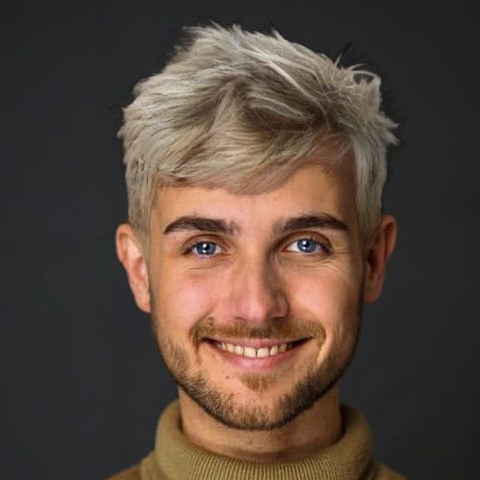Olli

Olli, 1997, queer, positive since 2018
Born in Münster, Germany, I moved to Witten to study. There I live now since 2019.
Besides studying, I also started playing the cello in Witten two years ago and (re)discovered my love for improv theater. I like to be around people and on the road in bars, clubs or even in the theater. I also love to relax in the sauna with a non-alcoholic wheat beer.
The time after my diagnosis passed me by like this. I confided in my best friend and my mother directly and experienced two different reactions. My best friend had no contact with the topic of HIV, was unprejudiced and simply there - she signaled to me that everything would be fine, and we would manage. For my mother, a world and perhaps also an image of me was shattered. It was very important to her to let the subject fall under the table and not to talk about it anymore. Since it pulled the rug out from under me, I followed my mother's advice and kept the diagnosis a secret, especially from my family.
The longer I kept it to myself, the bigger and heavier the burden of the diagnosis became.
I internalized the familiar stigmata and distanced myself from friends and family because I anticipated being ostracized anyway.
In the end, that's exactly what happened - I was alone, not because I was discriminated against, but because my fear of rejection isolated me.
I attended self-help programs and went to therapy. Over time, I was able to break down the stigma and open to more and more people, encountering so much appreciation, support, and goodwill.
In the meantime, I live positively as a matter of course.
Large parts of my family and friends know it, since it still concerns my health, not everybody has to know.
I otherwise enjoy my health and I am doing very well today.
What has changed through the diagnosis is my attitude towards myself. I have learned that characteristics like a diagnosis are part of me, but I decide how much space I give this part, because it does not determine me.
What helped me most was to talk about it. To exchange experiences of those affected, but also to talk to friends who have no idea about HIV. Through the exchange and conversations, you get into a processing process. You get new perspectives and can sort them out.
My offer is to come into conversation with you. I would like to answer the questions that your.
I want to answer the questions that your doctor cannot answer and give you a clear and differentiated picture of life with HIV.
